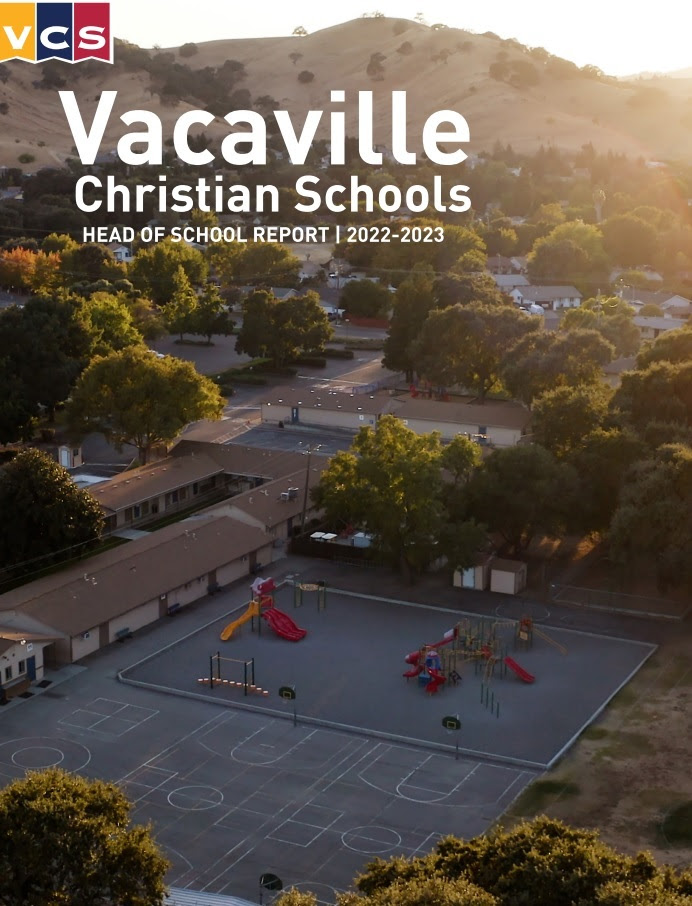February 2023
Math Matters…for College and Career Earnings
Written By: Mr. Andrew Wilson, VCHS College Counselor & Secondary Math Department Chair
From ancient Greece to the modern workforce, many have noted the importance of math proficiency. Today, success in math distinguishes top performers in a wide variety of fields. Students in middle and high school find themselves at a critical point in their math education; they have opportunities to achieve successes that will reverberate through their adulthood both on college campuses and in careers.
Legend has it that a major center of education in ancient Greece bore an inscription over the door reading “let no one enter who is not a mathematician”. Whether or not such an inscription existed, the persistence of the tale surely demonstrates the value the ancients placed on educating the youth in the realm of math.
In recent years, researchers across the world have examined the effect of secondary math education on a wide variety of outcomes in adulthood. Sadly, findings suggest that many are not well-prepared for the rigors of university coursework; one-third of all college students suffer from such a poor math foundation that they require a remedial course before engaging in their coursework for their degree. Unfortunately, this remediation along with broader lack of preparation for the rigors of college lead to many STEM majors being unable to complete their chosen science degrees. What is to be done to help the youth avoid these problems at the university level? Evidence points to a rigorous course of study in math at the secondary level being key. The Institute of Education Sciences found “[c]ompleting a high-level math course during high school positively predicted meeting the composite indicator of college readiness and early college success and of enrolling in only credit-bearing math and English courses [i.e. avoiding remedial courses] and earning all credits attempted.” Courses beyond Algebra 1, such as Algebra 2, Precalculus, and Calculus appear to have a particularly helpful effect here, with completion of each of these courses more than doubling the odds of completion of a bachelor’s degree.
Beyond its impact on a student’s experience in college, secondary math education can also greatly impact future earnings in adulthood. Economists have found that math courses taken in high school have quite an impact on one’s future earnings, while vocational math courses do not impact future earnings. Further, more rigorous math courses such as algebra, geometry, and calculus can have an especially large impact; calculus, specifically, was found to have a larger effect on future earnings than do such important factors as family income levels, parental education levels, and key measures of school quality such as student-teacher ratio! Students from a low-income background stand to gain most in their future earnings prospects from a more rigorous course of math study. This benefit is probably due to rigorous high school math curriculum providing access to STEM-related majors at the undergraduate level, as these majors lead to high future incomes.
Families have many choices when it comes to the education of their children. With the above in mind, when making such decisions, parents would do well to provide their children with great opportunities for math education, especially at the secondary level. Most public schools in our state require their students to complete two years of high school math courses, one of which is to be Algebra 1. Conceivably, many of the over 400,000 students who graduate from California public schools each year are doing so without ever attaining a course beyond Algebra 1! In light of the above scholarly findings, students would be well-served to be required to complete more rigorous math studies that include Geometry and Algebra 2 and encouraged to reach even higher to Calculus.
Here in Vacaville, one local school is helping its students to do just this. At Vacaville Christian Schools, all high school students are required to complete Algebra 1, Geometry, and Algebra 2 in order to graduate, completing the minimum math courses that predict great success in post-high school life and placing them a full two years of math beyond a student meeting the minimum requirements at a California public high school. The average VCS student is so successful in math that she has completed Algebra 1 prior to even entering high school. In the VCS class of 2023 specifically, over 25% of students had completed both Algebra 1 and Geometry prior to entering high school and over 45% completed AP Calculus during high school! According to the research above, these VCS graduates are well-positioned for success in college and for maximizing their earning potential in their careers.







